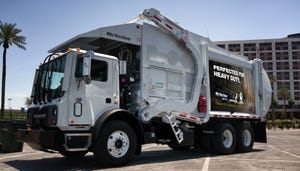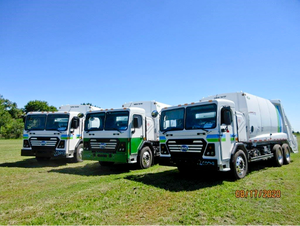LEGISLATION: Proposed U.S. Policy Aims To Reduce Hazardous Wastes
May 1, 1994
The Clinton administration wants to administer a recall first - a recall for mishandled hazardous waste exports.
Under the policy, illegal handling and disposal of hazardous wastes in other countries would trigger a return-to-sender response. This approach, translated into federal law, is the best way for the United States to do its part in implementing the 1989 Basel Convention on the Transboundary Movements of Hazardous Wastes and Their Disposal, according to the Clinton administration.
Keeping things in proportion, the administration is also seeking legislation that would let the Environmental Protection Agency return imported wastes to the originator if the wastes wrongly entered the United States or were mishandled here. If the Clinton administration has its way, Congress also will permit federal officials to prosecute illegal import or export violators and to seek reimbursement for enforcement costs.
The new policy is aimed at reducing the domestic hazardous waste generation, according to EPA Administrator Carol Browner. "Preventing pollution saves money for industry at the same time it saves lives," she told a conference of lawmakers from Europe, Japan, Russia and the United States. The group, Global Legislators for a Balanced Environment (GLOBE), hopes to spark the formulation of a common agenda on pollution control matters that the delegates and attendees can pursue at home. "Pollution prevention and recycling of waste can create jobs here in the United States and around the world," Browner said.
To implement the administration's goals, it is likely that legislation will be introduced in the House, according to Rep. Mike Synar (D-Okla.), a GLOBE member. Among other provisions, the bill would require bonding and liability insurance for hazardous waste exporters. The proceeds would help assure payment for the safe return of mismanaged wastes.
EPA's top criminal cop, Earl Devaney, told the GLOBE conferees that the agency's export tracking system can target suspicious outbound waste shipments. EPA hopes to thwart illegal disposal of hazardous materials overseas by passing leads and any additional information on to the appropriate foreign law enforcement officials through Interpol, Devaney added.
Existing export rules require domestic hazardous waste exporters to notify the receiving country and to get permission to ship the waste materials.
The exporter has no obligation to verify or question the quality of the handling or disposal operations after the waste arrives in the foreign county.
If and when the policy goes into effect, it would immediately shut down all hazardous waste exports except those to Canada and Mexico.
Hazardous wastes destined for recycling would be allowed to reach only Mexico and member states of the Organization for Economic Cooperation and Development, which includes Canada, Japan and certain other industrialized countries, for a five-year period only. There-after, recyclable hazardous wastes could be exported only to Canada and Mexico.
If Congress acts on bills to support the Basel Convention, the following wastes would likely be included immediately:
* RCRA Subtitle C hazardous wastes;
* Municipal solid waste; and
* Municipal waste combustor ash.
Still other wastes could be added to the restrictions through rulemaking or amendment of the treaty itself.
The administration's policy, however, gives the President flexibility. The President would have the right to grant exemptions from recycling and disposal bans where, for example, appropriate handling facilities in the United States did not exist.
In addition, the policy might allow an exemption where "an innovative technology will be used that is superior, environmentally and economically, to that which is available in North America."
Such an exemption would require that the waste be managed overseas with the same care it would receive in the United States and that shipment pose no undue risk.
The recyclable hazardous waste could be exported if the receiving country could show that the incoming material would ultimately be transformed into usable feedstock for new production.
About the Author(s)
You May Also Like




